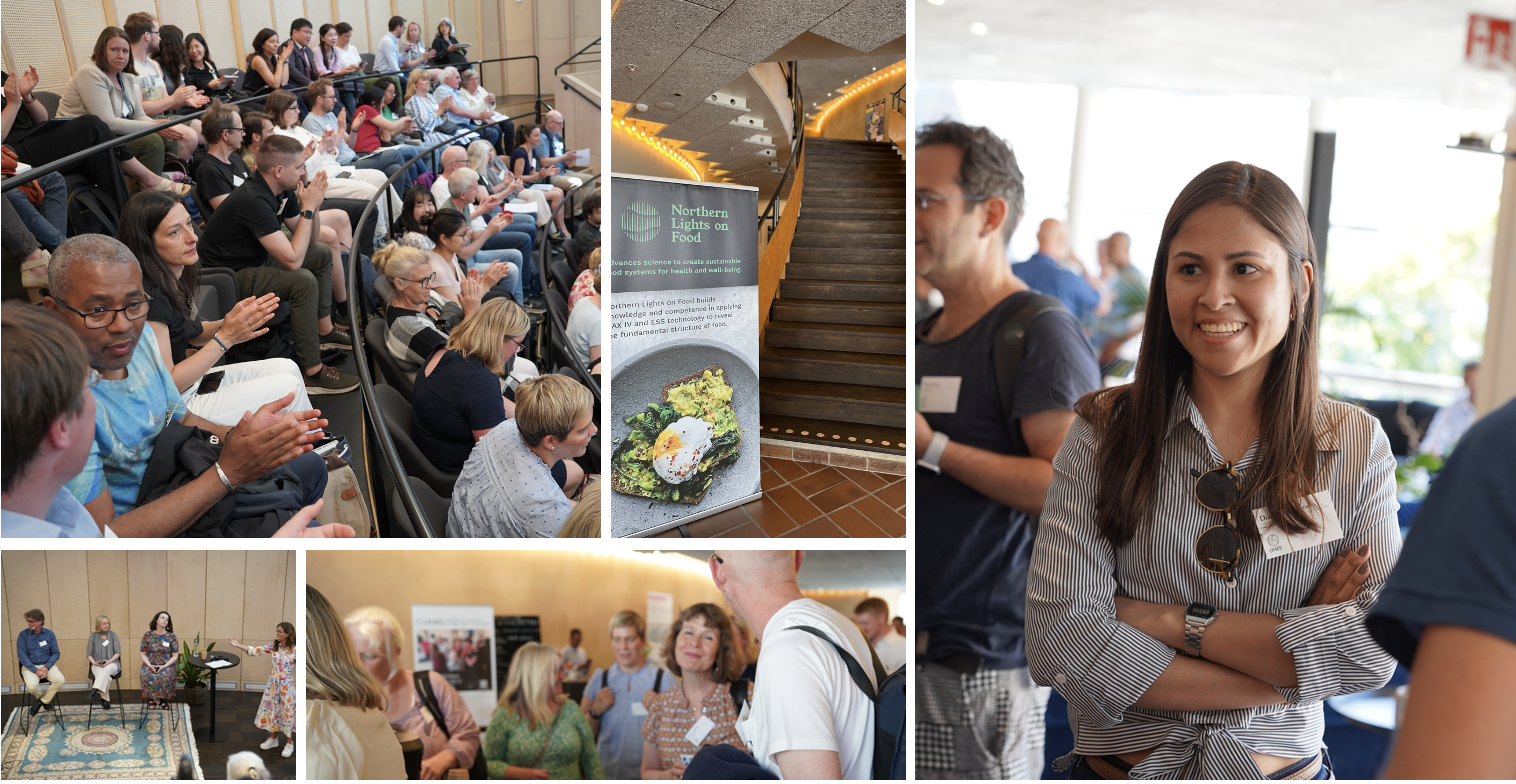The Northern Lights on Food conference showed that interest in food science is growing year on year
150 people gathered in Lund in June for the yearly Northern Lights on Food theme conference. Running across three days, the event covered broad topics such as proteins, food structures, and sustainable processing, as well as a public day which focused on the importance of taste in driving the shift to plant-based diets.
– It was a wide scientific programme with lively discussions, where we covered essential parts of sustainable food systems. This was the overall focus, says Tommy Nylander, theme leader and Professor in Physical Chemistry at Lund University.
Presentations included Science of Taste Drives the Green Transition by Prof. Ole G Mouritsen, Copenhagen University, A cup of neutrons by Dr Susana Marujo, Texeira, NIST and University of Delaware, as well as Processing for structure to optimise sustainability and health by Remko Boom, Wageningen University.
Reflecting on this year’s event, and looking back on previous theme activities, Tommy Nylander, says that interest in the area is growing year-on-year. With each conference more and more people have attended, and the scientific topics have broadened.
Tommy Nylander is theme leader and Professor in Physical Chemistry at Lund University.
– It shows that our work to present a scientific case and raise awareness of the need for fundamental research in food science is starting to pay off. While there is no money for actual research, we have now built a wide network of contacts.
Networking and connections are key to build research area
The importance of networking and connecting researchers with industry cannot be underestimated he emphasizes. Compared with the pharmaceutical industry, the food industry has very small margins to invest in research – because people expect food to be cheap. Other challenges are that there are still so many unknowns related to food structure, gaps which can have big consequences for nutrition and sustainability as more companies are looking to switch to plant-based food.
– If we transfer our diet from milk to plant based products, we can get deficiency of calcium phosphate for example. It is not so easy as to just add calcium to plant-based foods or mimic the same processes you use for milk. The same goes for iron from meat. Today, we don't know if that is the most efficient route to get the most optimal nutritional value, or even what happens inside different food during processing.
More basic research on food structure, processing and consumption is also relevant for reducing negative climate impacts from food production.
– It is not a given that plant-based food always will be less energy demanding to produce than say milk. With more knowledge, we can make sure that new types of foods will be both nutritious and sustainable, says Tommy Nylander.
Build on developments already made and focus on more complex systems
Going forward within the theme, Tommy Nylander would like to build on scientific advancements already made, on simple systems such as starch and oil, and step-up research on food using X-rays and neutrons. To that end, they are now preparing grant proposals to build processing equipment where they can use neutrons and X-rays to reveal what happens on the nano- and microscale during food processing.
– Food science has found a home through LINXS, and we want to continue to build on that work; to connect food research to high tech, where it actually belongs. Our end goal is a food lab between MAX IV and ESS, and to do that our theme need to come together around major collaborative grants, says Tommy Nylander.


